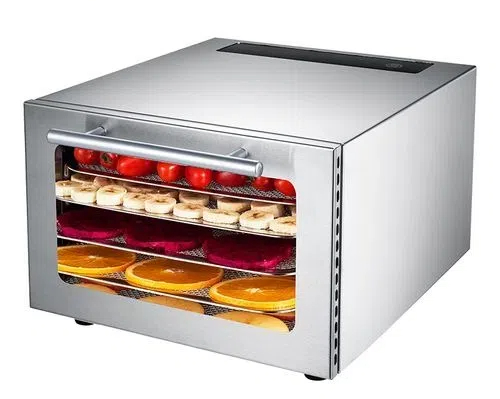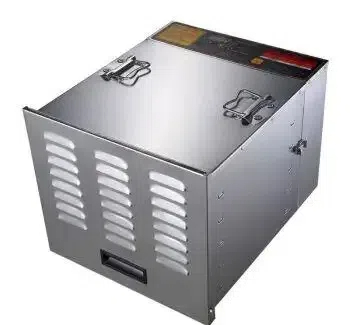
Content Menu
● Introduction to Heat Pump Dryers
● Understanding Heat Pump Technology
● Benefits of Heat Pump Dryers
● Key Considerations When Choosing a Heat Pump Dryer Manufacturer
>> Quality and Reliability
>> Technological Advancements
>> Customization Options
>> After-Sales Support
>> Compliance with Standards
● Applications of Heat Pump Dryers in Food Processing
>> Case Studies
● Maintenance Tips for Heat Pump Dryers
● Market Trends in Food Drying Technology
>> Increased Demand for Healthy Snacks
>> Sustainability Initiatives
>> Automation and Smart Technologies
>> Global Expansion of Dried Foods Market
● Conclusion
● Frequently Asked Questions (FAQs)
>> 1. What is the average lifespan of a heat pump dryer?
>> 2. Can heat pump dryers handle large volumes of food?
>> 3. Are heat pump dryers suitable for all types of food?
>> 4. How do I know if my heat pump dryer is working efficiently?
>> 5. What are common issues with heat pump dryers?
Introduction to Heat Pump Dryers
Heat pump dryers have emerged as a revolutionary solution in the realm of drying technologies, particularly for food products. Unlike conventional dryers that expel hot air, heat pump dryers operate on a closed-loop system, efficiently recycling air to remove moisture. This method not only conserves energy but also helps maintain the quality of the food being dried. As a manufacturer of food drying machines in China, understanding the intricacies of heat pump technology and choosing the right manufacturer is crucial for businesses looking to invest in this innovative drying solution.

Understanding Heat Pump Technology
Heat pump dryers utilize a refrigeration cycle to transfer heat from one place to another. The process involves:
- Evaporation: The refrigerant absorbs heat from the air inside the dryer and evaporates.
- Compression: The gaseous refrigerant is then compressed, raising its temperature.
- Condensation: The hot gas releases its heat to the air inside the drying chamber, condensing back into a liquid.
- Expansion: The refrigerant is allowed to expand, cooling it down before it re-enters the evaporator.
This cycle continues until the desired moisture content is achieved in the food products.
Benefits of Heat Pump Dryers
Heat pump dryers offer several advantages over traditional drying methods:
- Energy Efficiency: They consume significantly less energy, often reducing energy usage by up to 60% compared to conventional dryers.
- Gentle Drying: Operating at lower temperatures preserves sensitive nutrients and flavors in food products.
- Versatility: Suitable for a wide range of food items, including fruits, vegetables, and meats.
- Environmentally Friendly: Reduced energy consumption translates to lower carbon footprints.
- Consistent Quality: The controlled environment minimizes the risk of over-drying or uneven drying, ensuring high-quality end products.
Key Considerations When Choosing a Heat Pump Dryer Manufacturer
When selecting a manufacturer for heat pump dryers, especially for food applications, consider the following factors:
Quality and Reliability
The quality of the dryer directly impacts its performance and longevity. Look for manufacturers that have established a reputation for producing reliable machines. Check customer reviews and case studies to gauge satisfaction levels with their products. A manufacturer with a long history in the industry is often more trustworthy.
Technological Advancements
Manufacturers that invest in research and development are more likely to produce cutting-edge technology. Innovations such as smart controls, improved insulation, and advanced moisture sensors can enhance efficiency and ease of use. For instance, some models now feature IoT capabilities that allow users to monitor and control their dryers remotely via smartphone applications.
Customization Options
As an OEM supplier, it's essential that your manufacturer can provide customization options tailored to your specific needs. This includes size variations, control systems, and additional features that may be unique to your product line. Custom solutions can help you cater to niche markets or specific customer demands effectively.
After-Sales Support
Robust customer support is crucial for troubleshooting and maintenance. Ensure that the manufacturer offers comprehensive after-sales services, including warranty options and availability of spare parts. A responsive support team can significantly reduce downtime in case of equipment failure.
Compliance with Standards
Ensure that the manufacturer complies with international standards for safety and efficiency. Certifications such as ISO or CE can indicate adherence to quality management systems. Compliance not only ensures safety but also builds trust with your customers regarding product reliability.

Applications of Heat Pump Dryers in Food Processing
Heat pump dryers are particularly effective in various food processing applications:
- Fruit Drying: Maintaining flavor and nutritional value while achieving optimal moisture levels is crucial for dried fruits. Heat pump dryers can effectively dry apples, apricots, and berries without sacrificing quality.
- Vegetable Dehydration: Preserving color and texture without compromising quality is essential for vegetables like carrots and bell peppers. Heat pump technology allows for precise control over temperature and humidity.
- Meat Drying: Ideal for producing jerky or dried meats while ensuring safety through proper moisture control. The low-temperature drying process minimizes bacterial growth while enhancing flavor profiles.
- Herb Drying: Delicate herbs like basil and thyme benefit from gentle drying processes that maintain their aromatic properties.
Case Studies
1. Fruit Drying: A leading fruit processing company adopted heat pump technology to dry apples, resulting in a 30% reduction in energy costs while improving product quality. They reported enhanced color retention and flavor preservation compared to traditional methods.
2. Vegetable Dehydration: A vegetable processor implemented heat pump dryers and reported enhanced color retention and reduced drying times compared to traditional methods. Their ability to produce high-quality dehydrated vegetables increased their market competitiveness.
3. Meat Processing: A meat processing plant utilized heat pump technology for jerky production, achieving consistent results while adhering to safety standards. The controlled environment reduced spoilage rates significantly.
4. Herb Production: An herb producer transitioned to heat pump dryers and noted improved retention of volatile oils in herbs, leading to higher-quality products that fetched better prices in the market.
Maintenance Tips for Heat Pump Dryers
To ensure optimal performance of heat pump dryers:
- Regularly clean filters and condensate trays to prevent blockages that could impede airflow.
- Schedule routine maintenance checks with qualified technicians who understand food processing equipment.
- Monitor performance metrics such as energy consumption and drying efficiency; significant deviations may indicate issues requiring attention.
- Keep an eye on temperature settings; improper settings can lead to inefficient drying or damage to sensitive products.
- Train staff on proper operation procedures to maximize efficiency and minimize wear on equipment.
Market Trends in Food Drying Technology
The food processing industry is continuously evolving, driven by consumer demand for healthier options and sustainable practices. Several trends are shaping the future of food drying technologies:
Increased Demand for Healthy Snacks
As consumers become more health-conscious, there is a growing demand for nutritious snacks like dried fruits and vegetables. Manufacturers are investing in advanced drying technologies that preserve nutrients while enhancing flavors.
Sustainability Initiatives
With increasing awareness about environmental issues, many companies are adopting sustainable practices. Heat pump dryers contribute by reducing energy consumption and minimizing waste through efficient moisture removal processes.
Automation and Smart Technologies
Automation is becoming increasingly prevalent in food processing facilities. Smart heat pump dryers equipped with IoT capabilities allow for real-time monitoring and control, optimizing performance based on specific drying needs.
Global Expansion of Dried Foods Market
The global market for dried foods is expanding rapidly due to rising demand from both domestic consumers and international markets. Manufacturers are focusing on scalability and flexibility in their production processes to meet this demand effectively.
Conclusion
Choosing the right heat pump dryer manufacturer is crucial for businesses looking to enhance their food processing capabilities. By considering factors such as quality, technological advancements, customization options, after-sales support, and compliance with standards, you can make an informed decision that aligns with your operational goals. Investing in high-quality equipment will not only improve your product offerings but also contribute positively to your bottom line through energy savings and increased efficiency.

Frequently Asked Questions (FAQs)
1. What is the average lifespan of a heat pump dryer?
- Typically, heat pump dryers last between 10 to 15 years with proper maintenance due to their robust construction designed for commercial use.
2. Can heat pump dryers handle large volumes of food?
- Yes, many models are designed for high-capacity drying suitable for commercial applications; some can handle several tons of product per batch depending on design specifications.
3. Are heat pump dryers suitable for all types of food?
- While they are versatile, certain foods may require specific drying conditions; consult your manufacturer for guidance on optimal settings for different products.
4. How do I know if my heat pump dryer is working efficiently?
- Monitor energy consumption and drying times; significant deviations may indicate inefficiencies requiring attention or maintenance checks.
5. What are common issues with heat pump dryers?
- Common problems include inadequate drying due to clogged filters or malfunctioning sensors; regular maintenance can help prevent these issues from affecting production quality.












